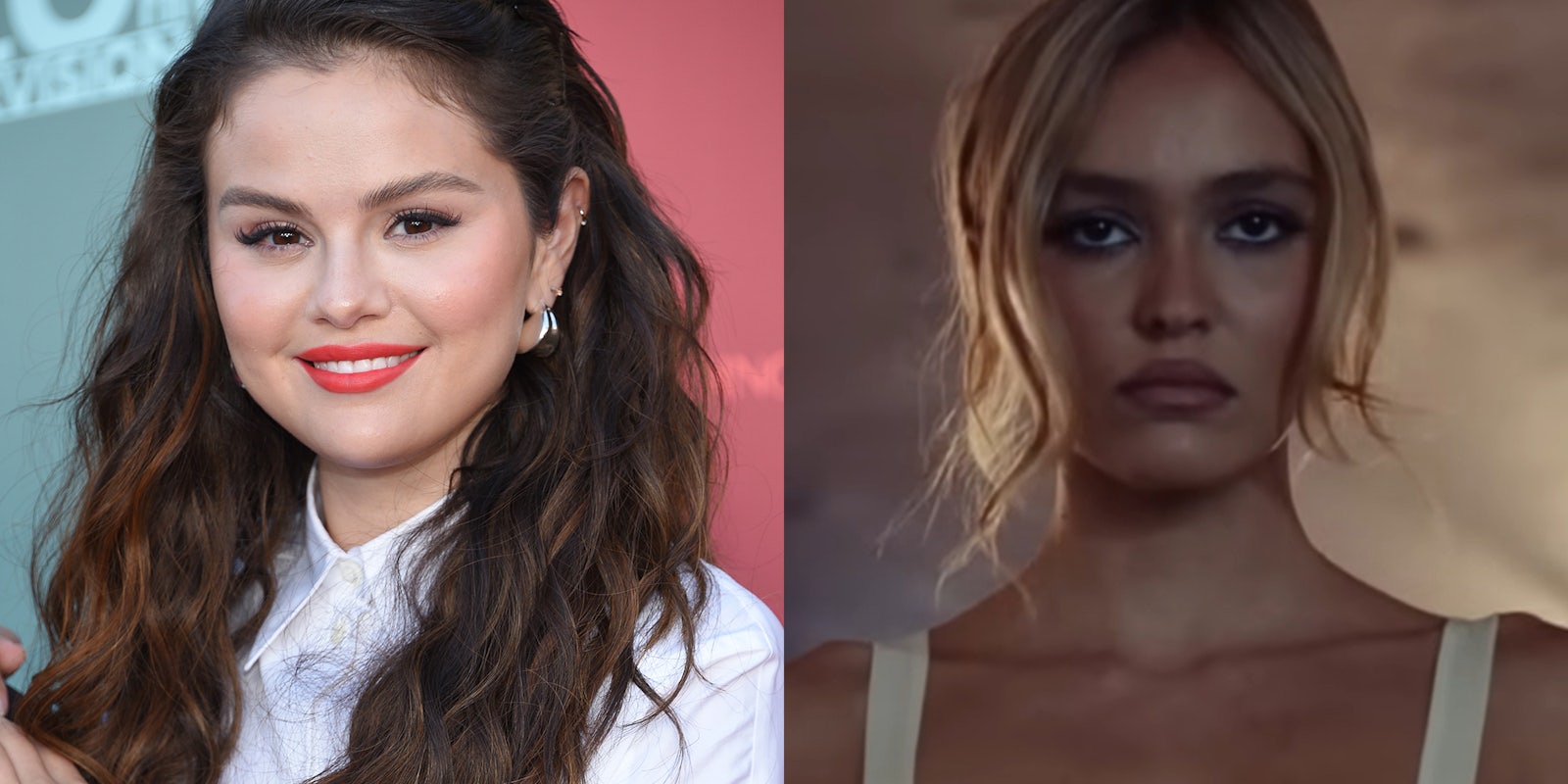In the few weeks since its premiere, HBO and Sam Levinson’s The Idol has become the internet’s favorite show to hate.
Viewers have noticed similarities between Lily Rose-Depp’s lead character, Jocelyn, and famous female pop stars like Britney Spears and Madonna, but recent comparisons with show star and co-creator Abel “The Weeknd” Tesfaye’s ex-girlfriend Selena Gomez have aggravated the existing controversies.
Fans speculate that Tesfaye used Gomez’s life during the 2017 period, during which the two singers were romantically involved, as inspiration for aspects of Depp’s character.
Some similarities viewers noted include the character abruptly canceling a tour and posing nude for an album cover while wearing hospital wristbands, all shown in the show’s opening scene.
Whereas Jocelyn’s struggle centers around her mom’s death, Gomez’s came from a lupus diagnosis and its mental health consequences.
To Martha Mary Santos, a TikTok creator and aspiring writer, the show’s opening struck the similarity.
“Watching as a Selena Gomez fan, it’s almost unsettling in itself,” Santos told the Daily Dot.
Jocelyn’s efforts to rebrand from a child star to a “bad girl” reminded her of Gomez’s Revival era, when the singer first spoke out about mature topics of sensuality and confidence, Santos said.
As a longtime fan who is “very protective” of the former Disney Channel star, she recognized the parallels with Gomez’s public struggles during the singers’ relationship.
“I feel like everyone should know that The Weeknd is exploiting Selena Gomez’s real-life trauma for his new controversial HBO show The Idol,” another creator said in a video.
@pattypopculture The 7 BIGGEST clues #TheIdol ♬ original sound – Patty
“I blame the whole writers’ strike on this show,” they added.
Since May 2, the Writers Guild of America—the union representing 11,500 screenwriters in TV, movies, and other forms of entertainment—has been on strike over disputes regarding pay and labor conditions. The strike is expected to set back TV filming schedules until an agreement is reached between the union and major studios.
HBO declined to provide comment about the controversy surrounding The Idol.
Tesfaye said a lot of Jocelyn’s character was “definitely inspired” by his experiences and the experiences of other artists he has witnessed at a press conference at the Cannes Film Festival. At the same time, Levinson added that the show was “not trying to tell a story about any particular pop star.”
Depp also told Entertainment Tonight that the team “actually drew from a lot of other influences that are not pop stars.”
“I just think it is telling that when you watch this show, you’re reminded of real-life artists,” Beverly Keel, the dean of Middle Tennessee State University’s College of Media and Entertainment, told the Daily Dot.
Keel said the show was “certainly reminiscent of things I’ve heard about the industry,” noting its notoriety for taking advantage of young women and people of color. She said the hopeful young people starting work in entertainment sometimes feel like they must tolerate abusive treatment to achieve their dreams.
“It makes it ripe to have a position where these young women can be molded or abused,” Keel said.
She found the show’s depiction of the lead character’s experiences hard to watch despite reading reviews that warned of the dark and disturbing nature of the show.
“No one except the artists knows the toll it takes to get up on that show, get up on that stage, perform that show, live life in the public eye, and be subjected to all that judgment,” she said.
Controversy has surrounded the show since before it premiered. Earlier this year, a Rolling Stone report alleging various issues on the set of the show shocked audiences, even eliciting a response from Tesfaye himself.
Based on production members’ testimonies, the report claimed the show had “gone wildly, disgustingly off the rails.” The singer responded to the backlash by quote-tweeting the article with a clip from the show where his and Depp’s characters call the legacy publication irrelevant.
While the show initially set out to critique the toxic and exploitative side of the industry, some viewers have found it glamorizes celebrity life instead.
A production member for the show even told Rolling Stone that “it went from satire to the thing it was satirizing.”
Clinical psychologist and Joy from Fear author Carla Manly told the Daily Dot she worries about the show’s portrayal of the objectification and dehumanization of women.
“We’re in danger of raising yet another generation where the norm is disrespect and devaluation rather than respect and decency,” she said. “[The Idol] really reflects some of the worst aspects of humanity and celebrity and, not that we want to shy away from reality, but we don’t want to glamorize it and make it something so sexy and appealing that people actually find it really entertaining, rather than abhorrent.”
Regarding the comparisons to Gomez’s real experiences, Manly also worried that “if somebody is suffering from mental health issues, to have those issues portrayed by another person can be really damaging.”
Gomez’s team did not immediately respond to the Daily Dot’s request for comment via email.



